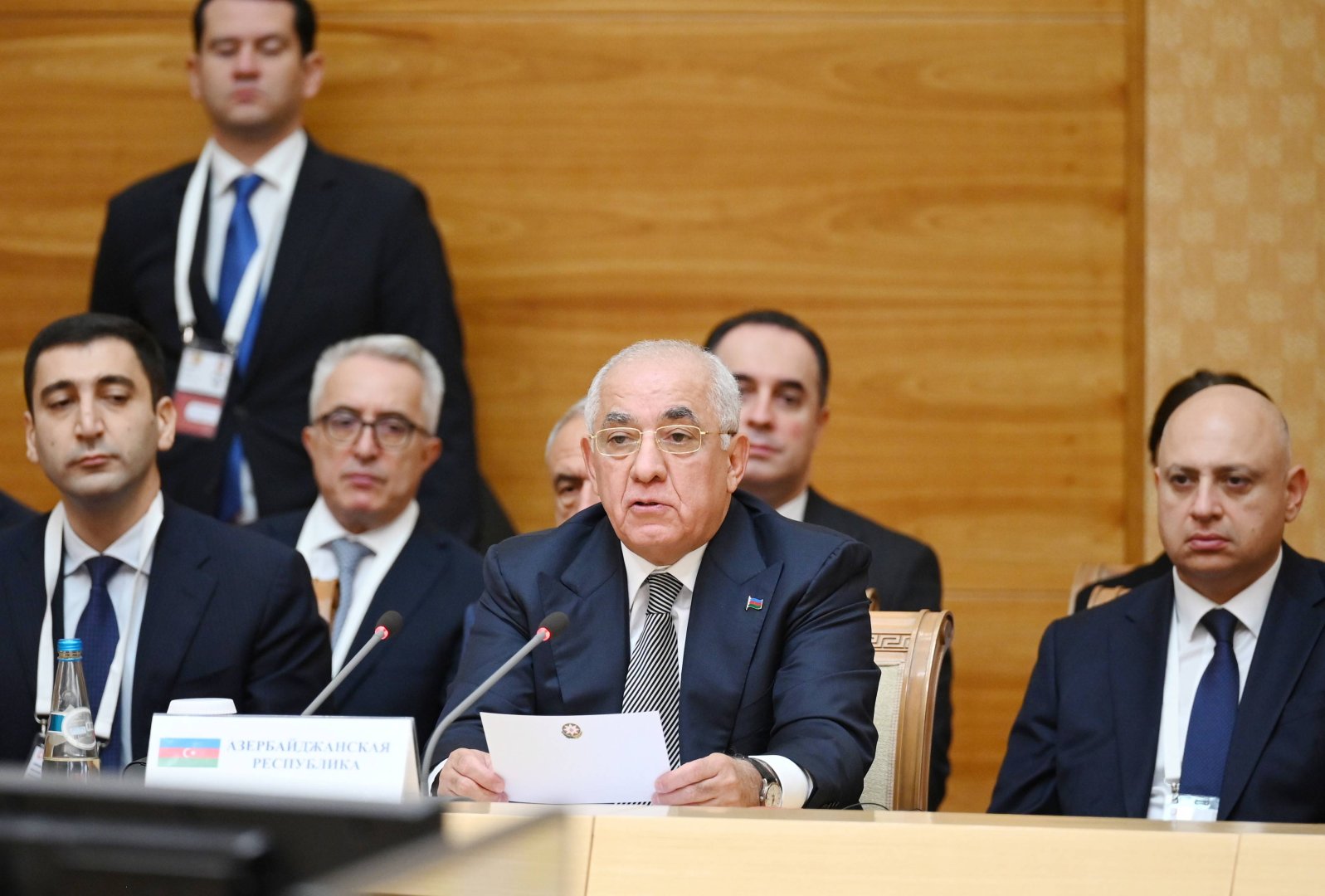BAKU, Azerbaijan, September 30. Azerbaijan's Prime Minister Ali Asadov participated as a guest in the enlarged meeting of the Eurasian Intergovernmental Council within the framework of his working visit to Minsk, the Azerbaijani Cabinet of Ministers told Trend.
Speaking at the meeting, Asadov assessed economic and trade cooperation as a fundamental vector of Azerbaijan's relations with the Eurasian Economic Union (EAEU) member states.
He noted that in the first eight months of 2025, Azerbaijan's trade turnover with the EAEU states rose by more than 22 percent.
The prime minister highlighted the positive dynamics of investment interaction.
"Businesses of our partners from the EAEU member states are widely represented in many sectors of the Azerbaijani economy," he emphasized.
The prime minister added that this is facilitated by the reliable and transparent investment environment in the country.
He also noted that Azerbaijani investors are actively implementing projects in the EAEU states that cover a wide range of industries and contribute to the development of their economies.
The prime minister touched upon the activities of joint investment funds created by Azerbaijan with several partners that are members of the EAEU to ensure mutual investment flows in key economic sectors.
"This initiative has already proven its effectiveness and opens up new horizons for cooperation," he explained.
Touching upon cooperation in the transport and transit sector, Asadov said that it holds a special place on the agenda as it has significant potential for increasing mutual trade and investments and developing new economic opportunities.
"Azerbaijan, located at the crossroads of Europe and Asia and with modern infrastructure, has become a reliable transport and logistics hub that creates new opportunities for the countries of the region and our partners," he pointed out.
Speaking about Azerbaijan's systematic efforts to modernize transport infrastructure, the prime minister drew attention to the increase in the capacity of the Baku-Tbilisi-Kars railway and the launch of the second stage of the expansion of the Baku International Sea Trade Port.
Asadov also emphasized the importance of the Middle Corridor.
"Over the past three years, the volume of cargo transportation through the territory of Azerbaijan along this corridor has increased by almost 90 percent, which is convincing evidence of its increasing efficiency and greater demand," he noted.
In this context, the prime minister noted the historical significance of the agreements reached to connect the main territory of Azerbaijan with its integral part, the Nakhchivan Autonomous Republic.
According to him, these accords establish novel parameters for the augmentation of transit pathways and the fortification of Azerbaijan's position within the regional and global logistics framework.
The head of the Azerbaijani government expressed confidence that the new corridor will become an important segment of the Middle Corridor, along with the North-South Corridor.
Considering that all five Caspian littoral states, including representatives of Iran, participated in the meeting, Asadov also drew attention to the issue of the shallowing of the Caspian Sea.
"President of Azerbaijan Ilham Aliyev recently emphasized the importance of this issue at the UN. Unfortunately, the ecological situation in the Caspian Sea is rapidly deteriorating. Preventing a potential ecological disaster in the Caspian region requires urgent joint efforts of the Caspian littoral states. Azerbaijan, adhering to previously reached agreements, is ready to strengthen cooperation to find joint solutions to this problem," the prime minister said.
Besides, he pointed out the anti-dumping investigations launched within the framework of the EAEU.
He recalled the investigations into goods of Azerbaijani origin—polyethylene, polypropylene, and propylene copolymers—as well as the reinvestigation into aluminum tapes.
Asadov noted that if anti-dumping measures are applied to the mentioned goods, the total volume of Azerbaijan's exports to the EAEU could significantly decrease.
"Azerbaijani companies participating in this process are open to cooperation. We hope that the investigations will be based on as many real facts as possible and that the outcome will not cause any real harm to Azerbaijan's trade cooperation with the EAEU countries, both multilaterally and bilaterally," he concluded.
The Eurasian Economic Union (EAEU or EEU) is an economic alliance including five post-Soviet nations situated in Eurasia. The EAEU possesses a unified integrated market. As of 2023, it comprises 183 million individuals and a gross domestic product of over $2.4 trillion. The EAEU promotes the unrestricted flow of goods and services and establishes unified policies in macroeconomics, transportation, industry, agriculture, energy, international trade and investment, customs, technical regulation, competition, and antitrust legislation.
Stay up-to-date with more news on Trend News Agency's WhatsApp channel







